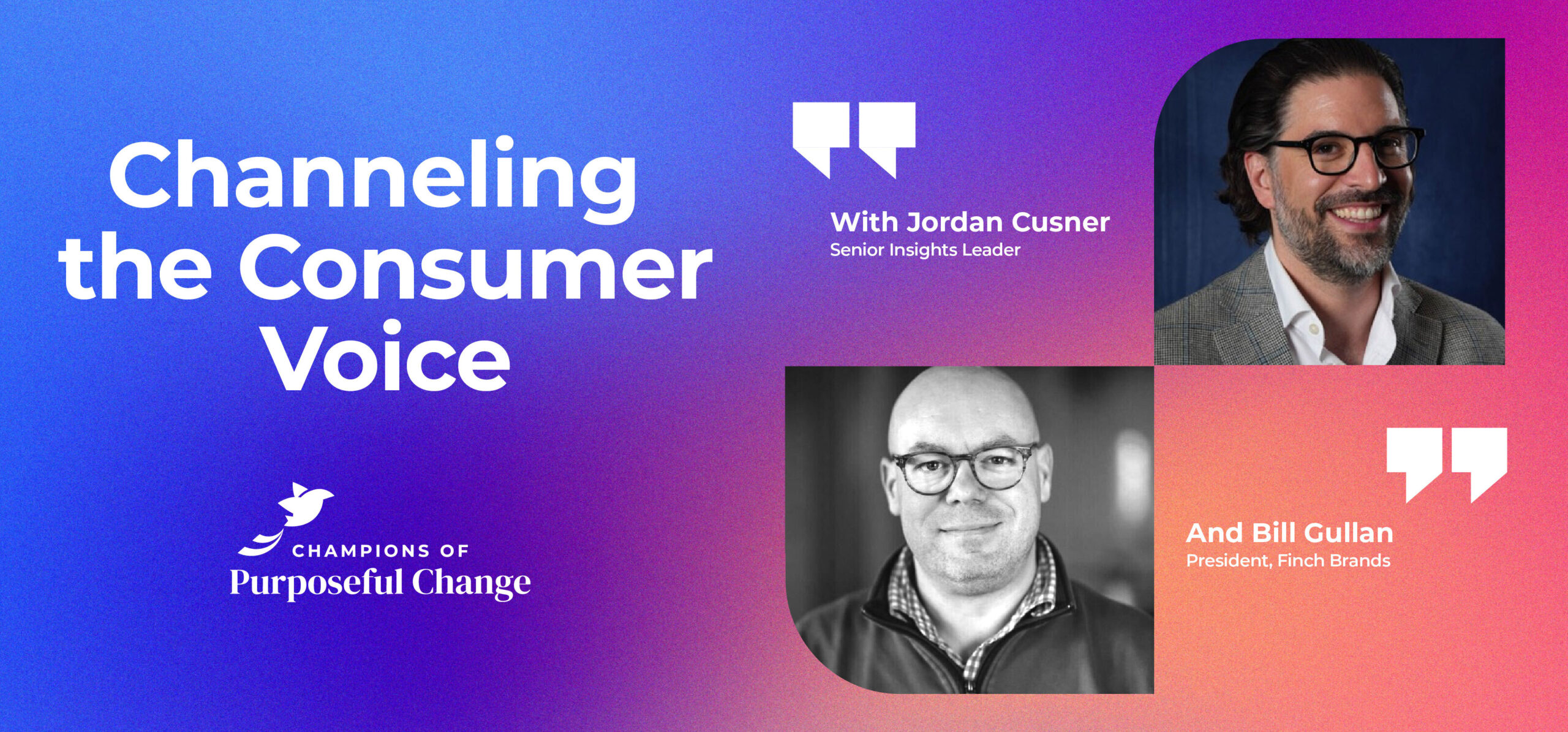
Stay in the Loop!
The Finch Brands blog and ‘Champions of Purposeful Change’ podcast contain our latest perspectives on the worlds of branding and business-building. Across platforms, stay in touch with us here.
-

January 23, 2026
|John Ferreira
Why Better Qualitative Research Runs in CIRCLEs
Traditional qualitative research is constrained by linear workflows that limit how effectively knowledge is carried forward from one study to the next. In *Why Better Qualitative Research Runs in CIRCLEs,…
Read More -

September 30, 2025
|John Ferreira
Webinar – Igniting an Always on Innovation Process: How Innovation Must Evolve in the Age of AI
In this webinar, Finch Brands’ Chief Insights Officer John Ferreira and Chief Experience Officer Lauren Collier explore how innovation leaders can thrive in a world where customer needs are changing…
Read More -

September 26, 2025
|John Ferreira
Webinar – Future-Proofing Your Corporate Insights Team
In today’s rapidly shifting business landscape, corporate insights teams face mounting pressure to not only keep pace with change but to anticipate and lead it. In this webinar, hosted by…
Read More -

July 30, 2025
|Bill Gullan
Leading with Insights with Leslie Willis of DIRECTV
We sit down with Leslie Willis, Senior Lead of Insights and Competitive Intelligence at DIRECTV. Even as the fundamentals stay the same in an industry and a category that is…
Read More -

April 2, 2025
|Bill Gullan
Channeling the Consumer Voice with Jordan Cusner
Jordan Cusner talks to us about his career journey – from music to law to the supplier side to insights leadership at big brands – and the unique wiring that…
Read More -

March 5, 2025
|Bill Gullan
Naming – Stick the Landing
In this final blog post of our five part Naming Series, see how we wrap it all up, tie it all together, and put a bow on it!…
Read More -

January 27, 2025
|Bill Gullan
Brand Name Development – How to Do It
In Part 4 of our Naming blog series, Bill shares his creative process for developing successful brand names with 6 tips to get you started!…
Read More -

January 13, 2025
|Bill Gullan
Name Types and their Strengths and Weaknesses
Dive into Part three in our Naming blog series, Name Types and their Strengths and Weaknesses.
Read More -

January 9, 2025
|Bill Gullan
Wired for Research with Jennifer Avery of Universal Destinations and Experiences
Jennifer Avery takes us through her career journey and into her role as Senior Vice President of Strategy & Insights at Universal Destinations and Experiences. Jennifer shares her perspective on…
Read More -

December 12, 2024
|Bill Gullan
A 2024 Roundtable Review with Fellow Finches John Ferreira and Lauren Collier
In this roundtable chat we discuss transformational insights and the continued importance of considering the human experience in research, and more, in this year in review.
Read More -

December 6, 2024
|Bill Gullan
Naming Risks and How to Avoid Them
In this 5-part blog series on brand naming we explore the importance of considering process risks and executional risks when changing or creating a brand name.
Read More -

November 22, 2024
|Bill Gullan
When to Consider A Brand Name Change
Before you consider a brand name change, do you have a strategy in place? Here's the brand name change strategy we recommend to our clients.
Read More

Sign Up For The Finch 5 Newsletter
Five thoughts, topics, and tips to inspire you.
